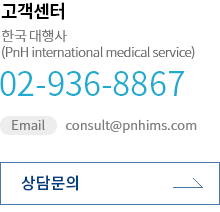면역치료 | 간암 CAR-T 임상 연구 CAR-GPC3 T Cells in Patients With Refractory Hepatocell…
페이지 정보
작성자 HK HIS 작성일19-09-16 18:18 조회5,610회 댓글0건관련링크
본문
CAR-GPC3 T Cells in Patients With Refractory Hepatocellular Carcinoma
Brief Summary:
This study is designed to determine the safety and efficacy of CAR-GPC3 T cells in patients with relapsed or refractory hepatocellular carcinoma. Single or multiple doses of GPC3-targeted CAR T cells will be given to subjects with unmet medical needs for which there are no effective therapies known at this time
Hepatocellular Carcinoma
Genetic: CAR-GPC3 T cells
Detailed Description:
A single arm, open-label pilot study is designed to determine the safety, tolerability and engraftment potential of CAR-GPC3 T cells in patients with GPC3-positive hepatocellular carcinoma.
Primary objectives:
Determine the safety, tolerability and cytokinetics of the autologous T cells transduced with the anti- GPC3 lentiviral vector in patients with hepatocellular carcinoma.
Secondary objectives:
Make a preliminary evaluation on the efficacy of CAR-GPC3 T cells in patients with hepatocellular carcinoma by the following parameters:
Objective response rate (ORR); Disease Control Rate (DCR); Time of tumor progression (TTP); Overall survival (OS).
Arms and Interventions
Arm
Experimental: CAR-GPC3 T cells
Autologous T Cells with a GPC3-redirected Chimeric Antigen Receptor. Route of administration: Intravenous injection.
Lymphodepletion conditioning regimen: A combination of fludarabine and cyclophosphamide will be administered at Day -6 to Day -3 prior to CAR-GPC3 T cells infusion.
Interventions
Genetic: CAR-GPC3 T cells
Self-controlled dose escalation will be applied to the first 3 - 6 subjects enrolled.
Classical "3+3" dose escalation will be applied to subsequent subjects based on the self-controlled dose escalation study.
Other Name: GPC3 Redirected Autologous Cells
Primary Outcome Measures :
1. Safety and tolerance [ Time Frame: 24 weeks ]
Study related adverse events are defined as signs above CTCAE Grade 3, laboratory toxicities and clinical events occurred at any time from the first day of infusion to week 24 that are "possibly", "likely", or "definitely" related to the study, including infusion related toxicity and CAR-GPC3 T cells related toxicity. Include but not limited to:
Fever;
Chills; Nausea, vomiting and other gastrointestinal symptoms; Fatigue;
Hypotension; Respiratory distress; Tumor lysis syndrome; Cytokine release
syndrome; Neutropenia, thrombocytopenia; Liver and kidney dysfunction; Other
toxicities.
Secondary Outcome Measures :
1. Engraftment [ Time Frame: 2 years ]
Duration
of in vivo survival of CAR-GPC3 T cells is defined as "engraftment".
The primary engraftment endpoint is the number of DNA vector copies per mL
blood of CAR-GPC3 T cells at regular intervals through week 4 following the
initial infusion. Q-PCR for CAR-GPC3 vector sequences will be performed until
any 2 sequential tests are negative, documented as engraftment and persistence
of CAR-GPC3 T cells.
Other Outcome Measures:
1. Anti-tumor responses to CAR-GPC3 T cell infusions [ Time Frame: 2 years ]
Objective response rate (ORR); Progression-free survival (PFS); Time of tumor progression (TTP); Overall survival (OS).
Ages Eligible for Study: | 18 Years to 70 Years (Adult, Older Adult) |
Sexes Eligible for Study: | All |
Accepts Healthy Volunteers: | No |
Criteria
Inclusion Criteria:
- 1) Patients aged 18 - 70 with relapsed or refractory hepatocellular carcinoma with unmet medical needs for which there are no effective therapies known at this time.
- 2) IHC testing confirmed as GPC3-positive hepatocellular carcinoma.
- 3) Expected survival > 12 weeks.
- 4) At least one measurable lesion (≥ 10 mm).
- 5) Cirrhosis of the liver: Child-Pugh Class A, or Child-Pugh Class B scored at 7.
- 6) ECOG scores 0 - 1 or KPS scores > 70.
- 7) Adequate venous access for apheresis and venous blood sampling, and no other contraindications for leukapheresis.
- 8) White blood cells (WBCs) ≥ 2.5×10^9/L; Platelets (PLT) ≥ 60×10^9/L; Hemoglobin, Blood (Hb) ≥ 9.0 g/dL; Lymphocyte (LY) ≥ 0.4×10^9/L; LY% ≥ 15%.
- 9) Serum albumin (Alb) ≥ 30 g/L; Serum lipase (LPS) and serum amylase < 1.5 ULN; Serum creatinine ≤ 1.5 ULN; Alanine aminotransferase (ALT) ≤ 5 ULN; Aspartate aminotransferase (AST) ≤ 5 ULN; Serum total bilirubin (TBIL) ≤ 2.5 ULN.
- 10) Prothrombin Time (PT): International Normalized Ratio (INR) < 1.7.
- 11) Able to understand and sign the informed consent.
All test results should be within their normal ranges, and the patient is not receiving continuous supportive care.
Exclusion Criteria:
Patients with any of the following conditions are not eligible for study.
- 1) Transduction of target lymphocytes < 10%, expansion in response to CD3/CD28 costimulation < 5-fold.
- 2) Pregnant or lactating women.
- 3) HIV positive.
- 4) Uncontrolled active infection.
- 5) Concurrent use of systemic steroids. Recent or current use of inhaled steroids is not exclusionary.
- 6) Allergic to immunotherapies and related drugs.
- 7) Previous or current hepatic encephalopathy.
- 8) Patients with ascites for which treatment is needed.
- 9) Patients with heart disease for which treatment is needed or with poorly controlled hypertension.
- 10) Patients with unstable or active peptic ulcer or alimentary tract hemorrhage.
- 11) Patients with previous organ transplantation or in preparation for organ transplantation.
- 12) Hyponatremia: serum sodium level < 125 mmol/L.
- 13) Baseline serum potassium < 3.5 mmol/L (taking potassium supplements before participating in the study to raise potassium level is acceptable).
- 14) Patients in need of anticoagulant therapy (e.g. warfarin or heparin).
- 15) Patients in need of long-term antiplatelet therapy (aspirin, dose > 300 mg/d; clopidogrel, dose > 75 mg/d).
- 16) Previous treatment of radiotherapy and chemotherapy, tumor-targeting drug, and intervention therapy 4 weeks prior to the commence of study (blood collection).
- 17) Other anti-tumor concomitant medication.
- 18) The judgment of investigators that the patient is not able to or not willing to follow the requirements of the protocol.






